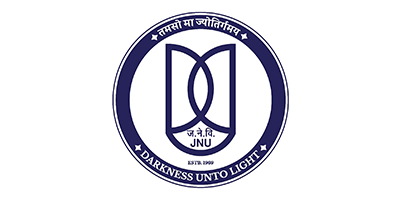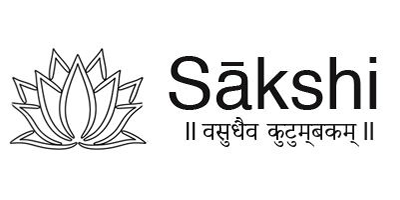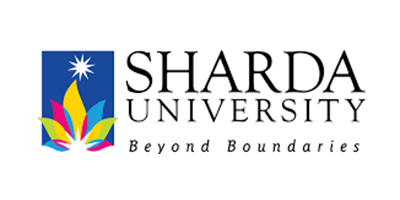Deendayal Research Institute
Pioneering Holistic Rural Development
The Deendayal Research Institute (DRI) is a premier socio-economic and applied research institution established in 1968 by the visionary statesman, social scientist, and philosopher Rashtrarishi Nanaji Deshmukh. Guided by the principles of Pandit Deendayal Upadhyaya’s philosophy of ‘Integral Humanism,’ the Institute has been dedicated to validating and applying these principles on the ground for over four and a half decades.
DRI focuses on fostering self-reliance (Swavlamban) through the contemporization of ancient ethos, indigenous thought, traditional knowledge systems, and appropriate technologies. The Institute operates on the belief that social harmony is the foundation of prosperity and equitable resource distribution. This holistic model addresses all aspects of human life, integrating economic, social, and spiritual dimensions.

Core Areas of Research and Intervention
DRI has conducted pioneering research and interventions in various aspects of rural life, including:
- Agriculture: Promoting sustainable and scientific farming practices.
- Water Conservation: Implementing watershed management and restoration of water bodies.
- Livestock Development: Enhancing productivity through improved veterinary care and breeding.
- Rural Entrepreneurship & Skill Development: Empowering villagers through vocational training and self-help groups.
- Education: Running schools and educational initiatives to nurture young minds.
- Health & Hygiene: Establishing health centers and promoting holistic wellness practices.
- Social Behavior: Conducting research on community dynamics and social structures.
- Scientific Temperament Among Children: Encouraging innovation and scientific inquiry.
- Appropriate Technology Adaptation: Identifying and deploying practical technologies for rural upliftment.
Philosophical Foundations
Inspired by Pandit Deendayal Upadhyaya’s Integral Humanism, DRI emphasizes the concept of Vasudhaiva Kutumbakam (The world is one family) and the interdependence of individuals within a community. Deendayalji envisioned a self-reliant society based on Panchayati Raj, ensuring inclusive development while prioritizing the welfare of the Antyodaya (the last man in the queue).
The Institute’s vision is deeply rooted in the Chatushpurushartha—the four pursuits of life: Dharma (righteous duty), Artha (economic well-being), Kama (desires), and Moksha (liberation). Unlike Western models that focus on material and intellectual development, DRI’s approach integrates Mann (heart), Buddhi (mind), Atma (soul), and Shareer (body), thereby ensuring holistic well-being.
Flagship Projects
1. Beed, Maharashtra
DRI identified Beed, one of the most backward districts in Maharashtra, as a focal area in 1987. Given its arid conditions and minimal rainfall (15-20 cm annually), the Institute implemented extensive water conservation projects, including:
- Restoration of Sondara Tank: A crucial initiative to ensure water security.
- Dhanyata Abhiyan: A large-scale effort to de-silt the Sondra percolation tank, making surrounding lands more fertile and involving thousands of students in voluntary labor (Shram Sadhana Shivir).
- Krishi Vigyan Kendra (KVK), Ambejogai: Established in 1992, this center provides advanced training to farmers for increasing farm and non-farm income.
- Jan Shikshan Sansthan (JSS), Beed: A vocational training center enhancing rural employability.
2. Chitrakoot, Uttar Pradesh & Madhya Pradesh
Recognizing the spiritual and historical significance of Chitrakoot, Nanaji Deshmukh chose it as his Karmabhoomi in 1991. DRI initiated multiple projects for self-reliance in the region, including:
- Krishi Vigyan Kendra (KVK), Majhgawan (MP): A 63-acre model farm providing sustainable agricultural training.
- Krishi Vigyan Kendra (KVK), Ganivan (UP): A 50-acre model farm supporting farmers with innovative techniques.
- Arogyadham: A 53-acre Ayurveda and Naturopathy wellness campus featuring:
- OPD with modern diagnostics
- 40-bed In-patient Department
- Maternity & Paediatric Centre
- Yoga & Meditation Centre
- Ayurvedic Research Centre & Herbal Garden
- Dental Unit and Outreach Programs
- Udyamita Vidyapeeth: A vocational training complex imparting skills for economic self-sufficiency.
- Surendra Paul Gramodaya Vidyalaya: A comprehensive school serving 1,000 students.
- Ramnath Ashramshala: A residential school for 200 tribal children.
- Parmanand Ashram Paddhati Vidyalaya: A school catering to 125 scheduled caste students.
Unique Development Model: Social Architect Couples
DRI introduced an innovative Social Architect Couples program, positioning dedicated rural families as change agents to drive self-reliance initiatives. This model has been successfully implemented in Gonda (UP), Beed and Nagpur (Maharashtra), and Chitrakoot (UP).
Impact of Deendayal Research Institute's Initiatives
The Deendayal Research Institute (DRI) has made significant strides in holistic rural development, particularly through its Self-Reliance Campaign initiated in 2002. This campaign targeted 500 villages within a 50 km radius of Chitrakoot, aiming to transform them into self-sufficient communities. By 2005, 80 villages had achieved self-reliance, with the remaining villages following by 2010. The campaign's success is attributed to the innovative Samaj Shilpi Dampati (Social Architect Couples) program, where dedicated graduate couples reside in villages to drive development initiatives.
One notable outcome of DRI's efforts is the establishment of litigation-free villages. Recognizing that societal disputes hinder progress, DRI facilitated conflict resolution mechanisms within communities, leading to harmonious living and a focus on development. As of the first phase, 80 villages successfully achieved litigation-free status, underscoring the effectiveness of this approach.
In Gonda, Uttar Pradesh, DRI launched the Gramodaya Project in 1978, marking its initial foray into integrated rural development. This project emphasized community participation and the application of appropriate technologies to boost agricultural and industrial production, setting a precedent for future initiatives.
Furthermore, DRI's commitment to sustainable agriculture is evident through the establishment of Krishi Vigyan Kendras (KVKs). For instance, the Tulsi Krishi Vigyan Kendra in Ganivan, Chitrakoot, established in 1992, serves as a model farm providing advanced training to farmers, thereby enhancing productivity and income.
Collectively, these initiatives highlight DRI's impactful role in fostering self-reliant, harmonious, and progressive rural communities across India.
The Deendayal Research Institute stands as a beacon of holistic rural development, demonstrating a replicable self-reliance model validated through grassroots application. Its integrated approach, deeply rooted in Indian ethos, has significantly transformed lives across multiple regions. With its unwavering commitment to Swavlamban and inclusive growth, DRI continues to shape a self-sufficient and harmonious rural India.



